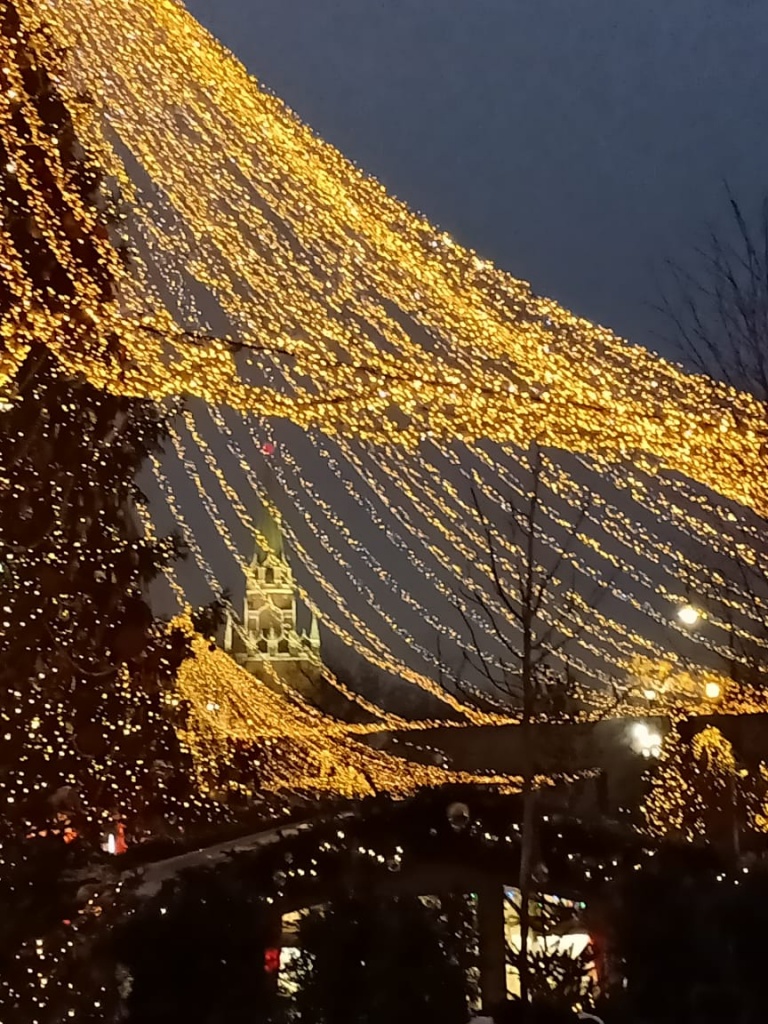
EcoTourism Expert continues its journey through the Christmas and New Year holidays all over the world.
Europe
Belgium
The Belgians pay much more attention to the festive decoration of their homes and festive tables, as Christmas in Western Europe is a family celebration, and therefore its atmosphere must certainly be joyful, colorful and cozy. At the same time, the main players are children, to whom the adults mainly devote this bright fest.
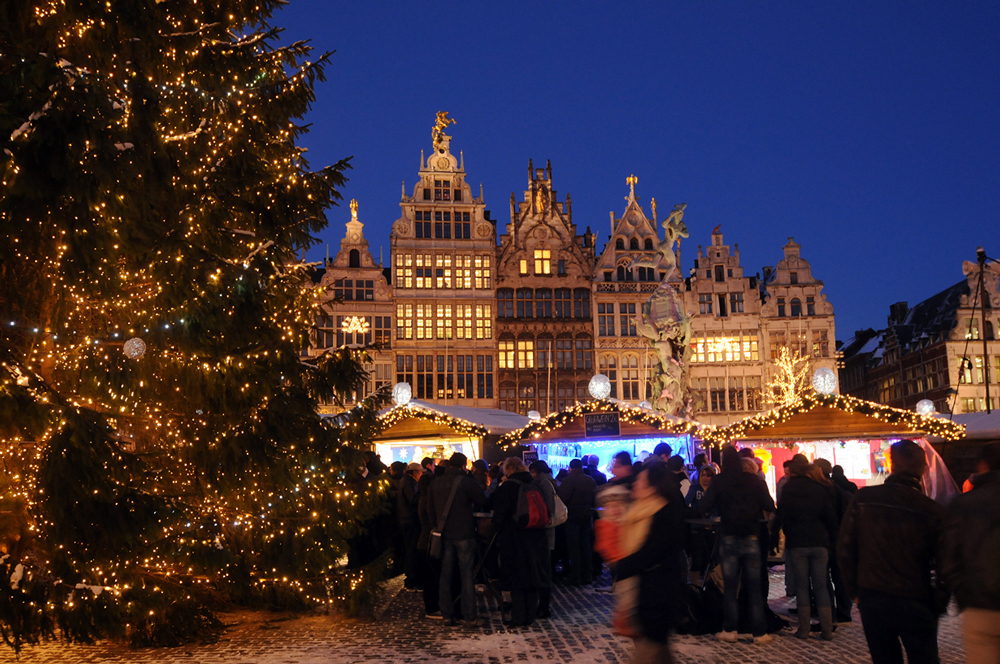
The Christmas menu in Belgium is not diversified compared with the New Year’s one. The traditional Christmas dishes are cream of lobster, turkey with chestnut stuffing, fried pork and blood sausage patties, as well as baked apples and the Christmas cake – ‘log’. It is noteworthy that 80 percent of Belgians buy a surplus amount of food for Christmas and are not even able to eat it during the holidays.
The Belgians traditionally prefer to give money as Christmas gifts, as well as perfumes and cosmetics, books, chocolate products and alcoholic drinks.
Belgian brewers produce ‘Pere Noe’l’ beer specially for Christmas and New Year, as this is the name of Santa Claus in France and Belgium. The festive variety is distinguished by its orange color and banana-caramel-pear flavor.
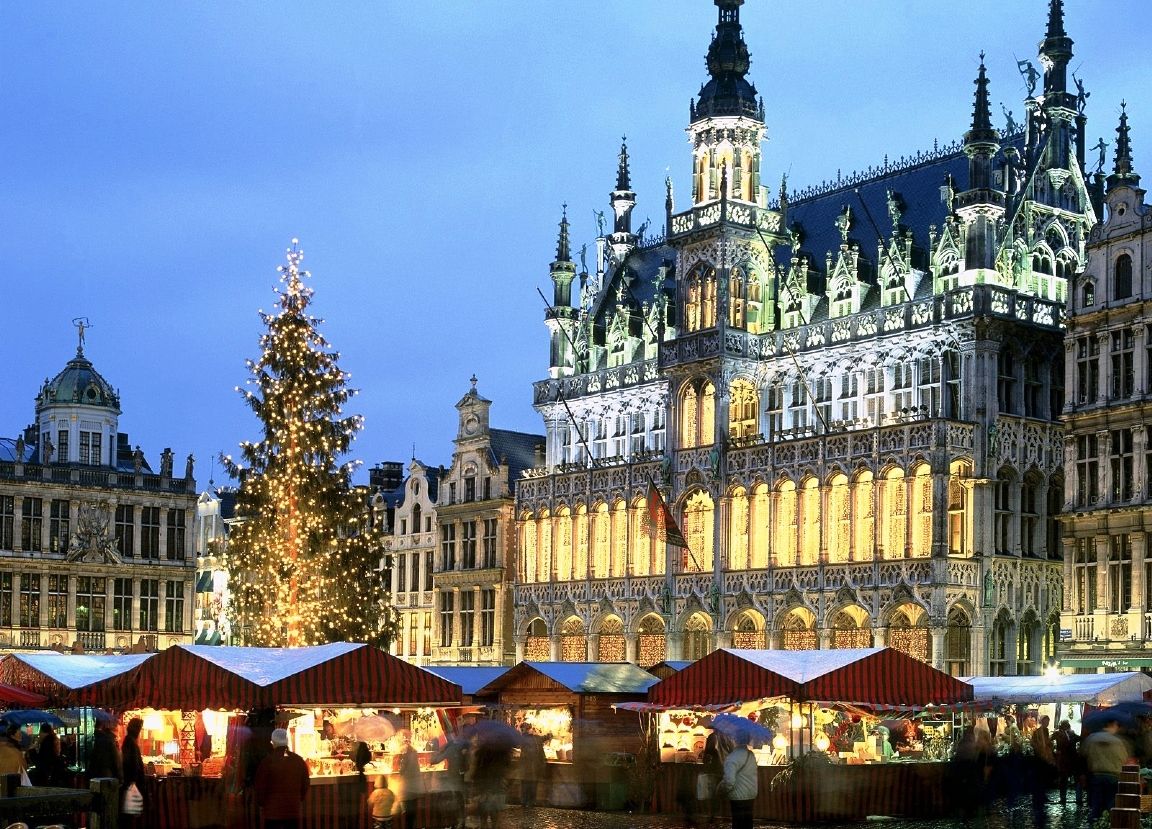
In addition to the traditional ‘Pils’ - light lager beer - a wide range of products are in demand brewed in the abbeys, as well as by trappist monks, and a unique ‘Gueuze’ beer, which is fermented in the open air using the microorganisms.
The Belgians also love varieties of fruit beer, first of all, the famous ‘Kriek’ cherry beer.
Experts advise to taste ‘Christmas’ beer together with nuts and chocolate, sitting at an open hearth.
A Christmas beer festival OBER Kerstbierfest is held annually on the Christmas Eve in Essen, Belgian Flanders. Last year, its guests - and over 3,000 ones who came from all over Europe - were invited to taste more than 150 varieties of ‘winter’ frothy Belgian-made beer.
Asian countries
Traditional European winter holidays are celebrated here in a very peculiar way, because there are mainly few Christians here, and the Asian tradition does not connect the next year’s entry to a strict calendar date, but to the Lunar calendar, historical events or agricultural work.
China
No wonder that the people of the Celestial Empire are called artful, they celebrate the New Year twice
For example, in China, the New Year is celebrated twice. According to the European tradition, it is celebrated on the night of December 31 to January 1 and is called ‘Yuan-Dan’ (Beginning of dawn). The Chinese celebrate it in a family setting, modestly and calmly. Although, of course, there are all the external attributes that accompany Santa Claus. In the center of Beijing, on the historic shopping street - Qianmen, the country's main Christmas tree is set up generously decorated with ornaments and colorful garlands. Smaller-size synthetic Christmas trees are also in the places where there are crowds of customers - in large shopping centres, office centres, and Santa Clauses wander about the cities.
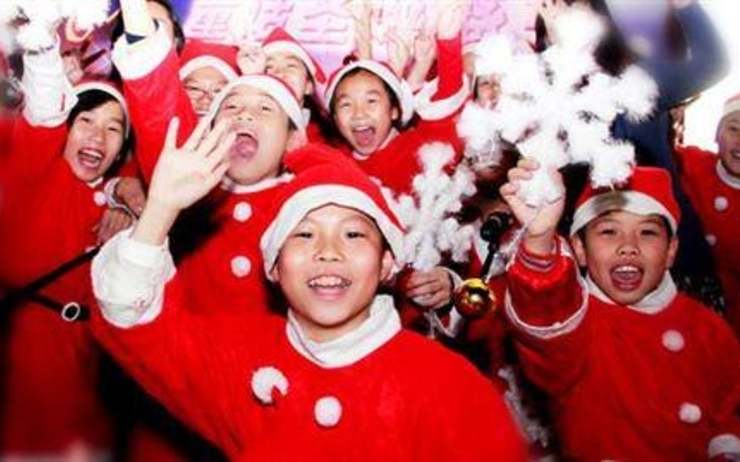
The tradition to celebrate the New Year on the night of December 31 to January 1 came to China after the adoption of the Gregorian calendar in 1911. To avoid confusion between the European and Lunar New Years, on September 27, 1949, the government of the Republic approved the official names of these holidays. The first day of the lunar calendar was called ‘Chunjie’ (Spring Festival), and on January 1, according to the Gregorian calendar – ‘Yuan-Dan’ (Beginning of dawn). ‘Yuan-Dan’ has become an official public holiday and a day off.
The history of the Chinese New Year celebration is many centuries old. It is associated with the beginning of the reign of Huángdì (the Yellow Emperor), in 2697 B.C., therefore, on Saturday, January 25, 2020, China will enter its 4717th year. The fest does not have a fixed date, the beginning of the next year falls on the second new Moon after the winter solstice, and therefore, moves between January 21 and February 21.
The festival is usually noisy and merry, and sometimes explosive; it is believed that on New Year's Eve evil spirits expelled from different places are looking for a new haven, and it is better to urgently scare them away from the homes by firecrackers, crackers and fireworks. There is also a belief that demon spirits are afraid of a red colour, so this colour prevail throughout the festival. By the way, it is also customary to buy new clothes before ‘Chunjie’ to celebrate the Spring Festival wearing it. However, red outfits are preferred, but in the homeland of the Eastern horoscope, there is no tradition - popular in the European countries - to wear the clothes of the colors that the animal symbolizing the year likes. But a lot of the Chinese prefer to have their child born in a successful year, and the upcoming Year of the White or Metal Rat is great for this.
India
There are about a dozen New Years, and there is a New Year traditional for the Europeans
It's safe to say that India is the country richest in ‘New Years’ in the world - there are about a dozen holidays meaning the same, and they all take place at different dates of the year. The Indian society is known for being very religious, here Muslims, Christians, Buddhists and Hindus coexist quite peacefully. But these religions make no mention of such a holiday as the New Year, and only recently, under the influence of the West, the date of January 1 began to be considered a holiday in India.
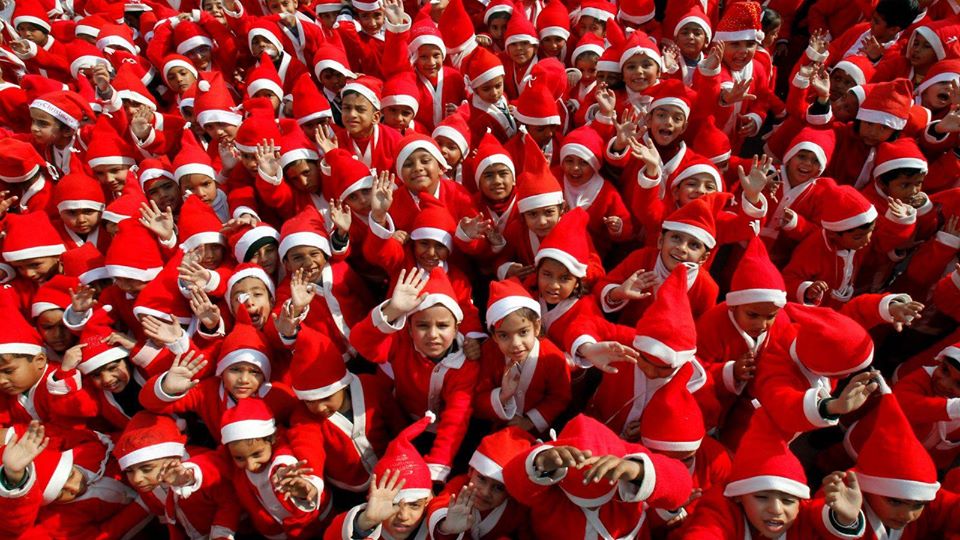
The New Year is celebrated with the most solemnity in the regions where the Christians mainly live (2.3% of the country's population, or 27.8 mn people). In three northeastern states - Nagaland, Mizoram and Meghalaya - they even make up the majority of the population, and the Christian communities are also widely represented in Goa, in the southern states of Kerala and Tamil Nadu. More than a quarter of the Goa population, for example, are Catholics, and carnival processions, competitions and fairs take place in Goa, there fly kites, some people go on live embers and jump over the fire. In addition to the New Year, the Christians in India, of course, celebrate Christmas, too.
The variety of religions and chronologies has led to the fact that in different regions, completely different dates are considered the beginning of the New Year. So, a holiday symbolizing the transition from winter to spring, Lori, is celebrated
on January 13-14 in North India, and it is a kind of mixture of the familiar ‘Old New Year’ and Shrovetide carnival. On this day, bonfires are made around which ‘parikrama’ - circumambulation of a sacred place - is made. After this ritual, everyone present is given corn and baked rice cooked right there. In the morning, after the holiday, the time for carols comes, the children visit neighboring houses, sing songs and receive money or sweets.
Africa
But what happens in the countries with which Europeans do not associate the New Year and Christmas celebration? Have another guess coming! A holiday comes here, too. In Africa, there are both Christmas, and the New Year's gatherings. The correspondent of EcoTourism Expert talked to ordinary people about how they usually celebrate these fests.
Nabimiya
New Year with family
In the Namibia Otjiherero culture, they usually spend the Christmas holiday with a family. “We mostly spend the Christmas holiday with extended family. We travel to the farm/village to our grandparents. Our celebration starts on the 24th as we attend a church service under a tree singing hymns, while children quote scriptures about Jesus Christ ‘Omambo Jokomuti’. They also receive their Christmas gifts.
“The next day in the morning, we start preparations for the main event in the evening. Ladies prepare salads and ‘Herero’ bread, while men slaughter sheep or goat. They also ‘braai’ the meat (barbecue). The party usually start late afternoon with the youth dancing, while the elders sit in their corner singing hymns. Speeches, exchange of gifts then follow,” Memory Tatii told us.
In the Namibia Oshiwambo culture, mostly all family members across the nation gather up at ‘kuku’ (grandmother’s) house. Everyone brings gifts or food to share with others.
“Our ’kuku’ then brews ‘omalovu’, a non- alcoholic traditional brew. Christmas eve is characterised by green tree branches placed on all entrances to the homestead and apartments. By midnight, everyone will be awake and starts shouting 'Twathikamo mokiri!' (We have made it to Christmas). Greeting each other and waking up those who might have slept. The same is done on New Year.
“Come Christmas morning, the celebration begins with ladies in ‘peruwo’ (kitchen) and man ‘pochoto’ (barbeque). All the cooking takes place while drinking ‘omalovu’, cool-drinks and of course ‘punya punya’ (beer). Everything is done joyously and in harmony. The young people visit each other later afternoon to feast and sing together,” said Nomusa Amagola, an EcoTourism Expert.
Many people prefer home with mom and dad and many siblings sitting around a fire at night enjoying each other's presence and beverages. Human interaction - that's the best Christmas ever. People send each other money and gifts. You can ask someone if he or she have made the required plans to give you your present just saying: ‘Christmas Box.’
Botswana
In Botswana, the Kalangas go to the village where they gather as a family. “We prepare rice, ‘coco i tswana’ (chicken), ‘mapakiva’ (buns), salad. They eat and drink wine and beer while sharing stories. Of course, we exchange gifts. They also go for traditional choirs and young men may do sports to wind the day,” says Hopewell Nyaungwa.
South Africa
Wealthy families often celebrate Christmas at hotels, for example, in Cape Town. Many activities will be happening at the hotel, including games, racing and beach parties. And, of course, very nice food and Christmas specials are served in the Spa.
Where there is no Christmas
But the Santa’s village does exist! Certainly, it is there...
It may seem strange to a European, but there are many countries in the world where they are quite calm and even completely indifferent to the New Year and its celebration. This primarily applies to the Muslim countries of the Arabian Peninsula, especially to the conservative Qatar, where the local population remains indifferent to Western influences to celebrate Christmas and New Year on a grand scale.
In the Muslim world, it is not customary to celebrate or attribute any importance to secular holidays. The Qatari authorities periodically try to fight traditions that are alien to their Muslim culture, but cannot but take into account foreigners living in the small emirate, who are twice as many as the local population, and they consider winter holidays to be one of the most important in the year. Foreigners complain that they cannot feel the atmosphere of a winter fairy tale in Qatar and try to leave home to celebrate this fest.
The Qatari people do not decorate their houses or villas on the New Year, because citizens of the rich emirate have the opportunity to travel abroad if they wish to feel the festive atmosphere, but, as a rule, decorative lighting on the fences around houses or palm trees in front of them lit on the Qatar National Day December 18 is until the New Year.
Local authorities do not want the people living in the emirate to focus on foreign holidays, so Christmas and New Year decorations in public places are minimal. Only foreign retail chains’ supermarkets put Christmas trees and garlands in their display windows; the Qatari state chain stores do not show even any hint of the approaching fest.
They also do not welcome the Christmas and New Year's parties in public places, schools or kindergartens, but the international schools, which are numerous in Qatar, do not observe this ban and organize a grand celebration for children.
The Russian-speaking community in Qatar is particularly active in this regard. Every year, in the Russian weekend school, they do a circle dance around an artificial Christmas tree before the New Year, children drop letters to Santa Claus in the mailboxes, learn poems about the New Year and sing them to Grandfather Frost wearing a luxurious blue robe, and he gives a gift - sweets brought from Russia. In addition, children of different ages watch the New Year’s performance in Russian based on the well-known children's books, and their friends are actors playing the roles. This year, they are waiting for the musical performance ‘The Nutcracker’ and a Christmas tree based on the ‘Bremen Town Musicians’.
The authorities of Qatar, realizing that foreigners who remain for the winter holidays in their country would still need entertainment, gave numerous five-star hotels complete control over this issue, they hold special ceremonies before Christmas on December 25 called ‘tree lighting’. Adults and children gather in the hotels looking like palaces to watch the lights lit up on a huge artificial Christmas tree and Santa comes so that the children could sit on his lap.
Hotels and restaurants offer the New Year programme, these are the only places in Qatar where free sale of alcohol is allowed, otherwise, strong drinks are sold in specialized stores under a license only.
In recent years, travel agencies have begun to seize the initiative of holding winter celebrations at hotels and hold parties in unusual places. Those who wish can plan a romantic New Year’s dinner on board ‘dhow’ - wooden ships, traditional for the Persian Gulf countries, which sail across the bay during the holiday overlooking the lights of the Doha's skyscrapers. You can also go on a trip with your family in Jeeps in the desert in search of a mysterious Santa’s ‘village’, visiting one of the most interesting places in Qatar - the inland sea in the middle of the desert.
In the village of Santa, on the shore of the Persian Gulf, there are bonfires, barbecue, Christmas songs, and cheerful Santa throws candies into the crowd of children and tells them to look for their gifts under the Christmas tree, and all the people who have come to this place exchange gifts and congratulations with each other.
In Qatar, there are branches of many world churches, in December they organize charity Christmas markets where representatives of the Christian communities come to sell their national souvenirs and food. Bazaars are followed by carol and Christmas church services, which for Christians in Qatar become an indispensable component and the main meaning of the upcoming holidays.
Russia
The country of the ‘Olivier’ salad and the film ‘The Irony of Fate, or Enjoy Your Bath!’
Fir-trees and a delicious dinner are typical of Christmas in most countries. And in Russia, for most people, the New Year, namely the night from December 31 to January 1, is the main celebration. This is due to the reform of 1918 - the Bolsheviks did not like the religious background of Christmas. The tradition of celebrating Christmas on January 7 suffered significantly in the atheistic Soviet Union. However, in recent years, the Russians have been actively resuming its celebration. More and more Orthodox people observe the Christmas fast during the New Year, they lenten and do not drink alcohol.
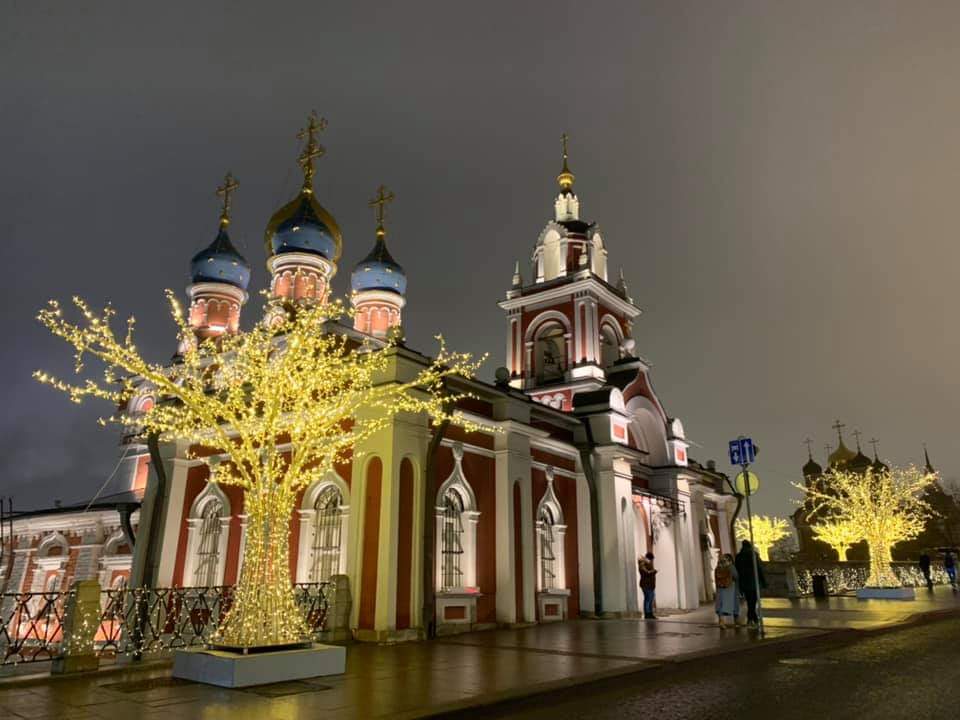
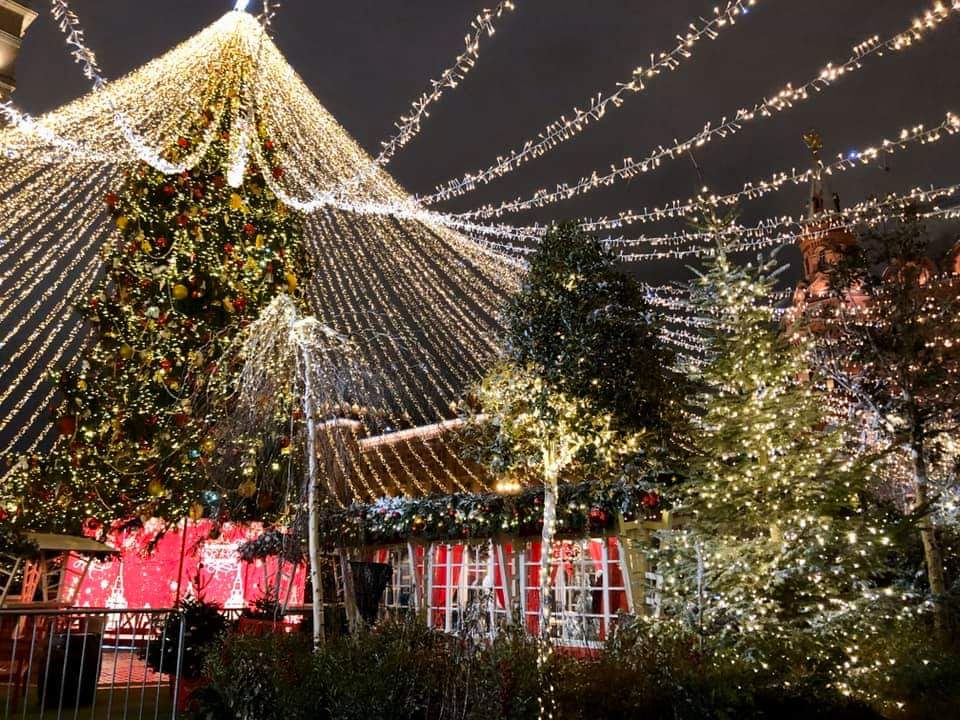
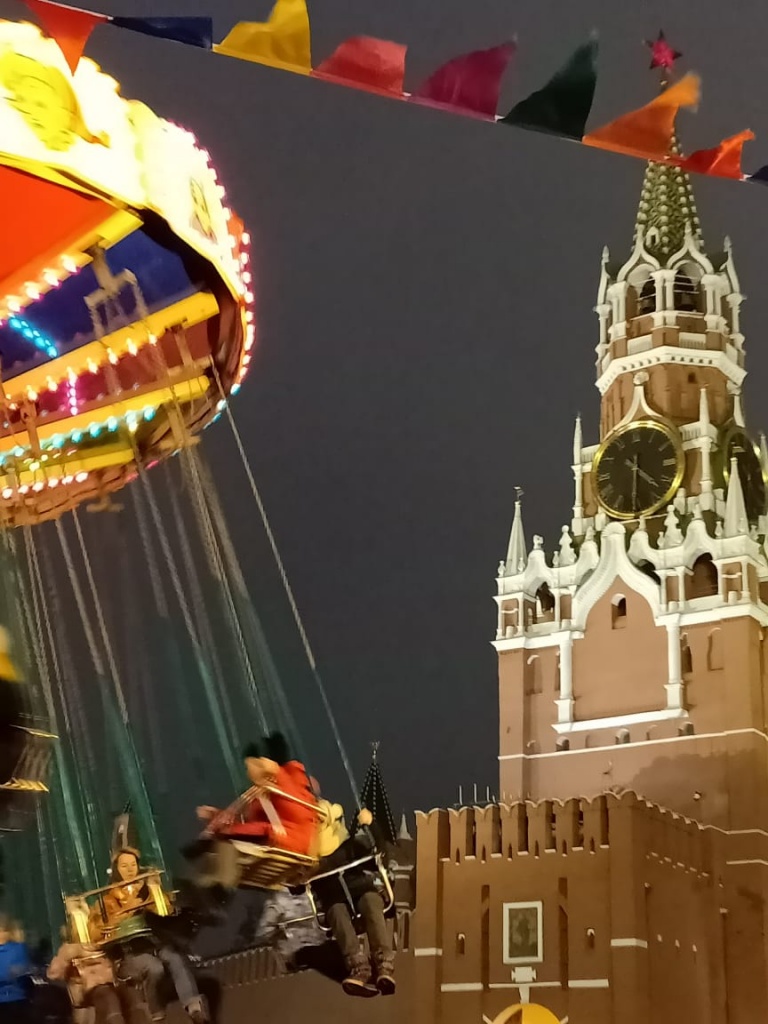
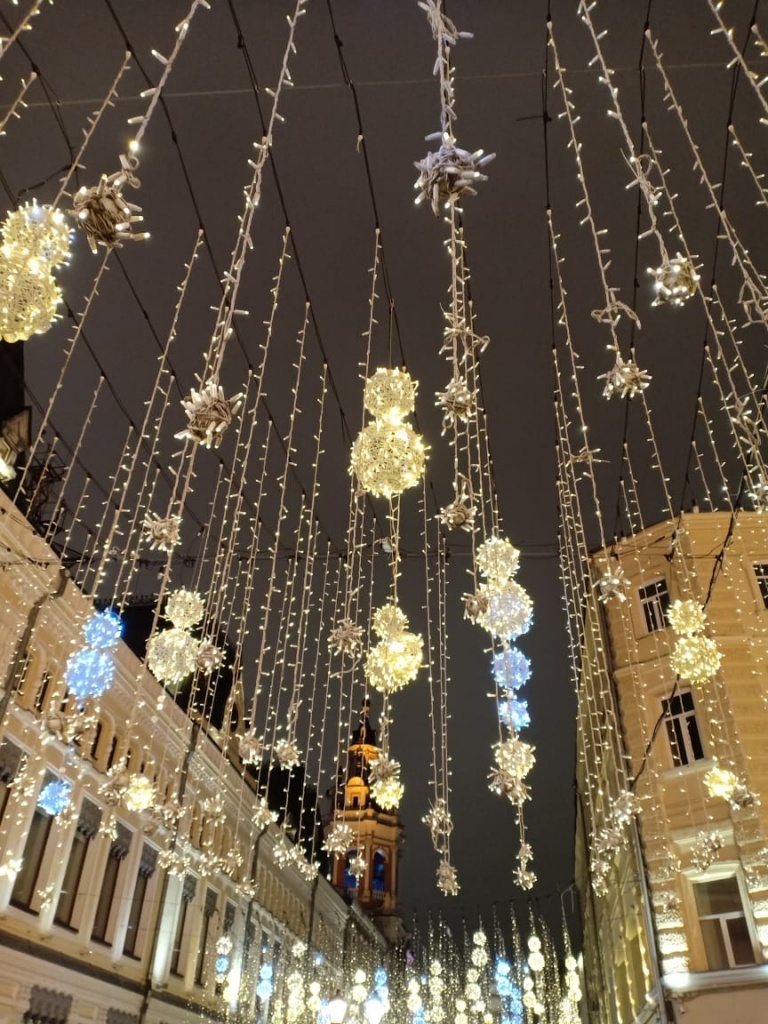
After that, everyone talks at the table, sometimes dances, and then people go outside, light fireworks and have fun until the sun goes up. Many visit their friends, or - if they are with their friends - on the contrary, go to their parents, walk around the city, and if there is snow, go downhill sledging, play snowballs.
